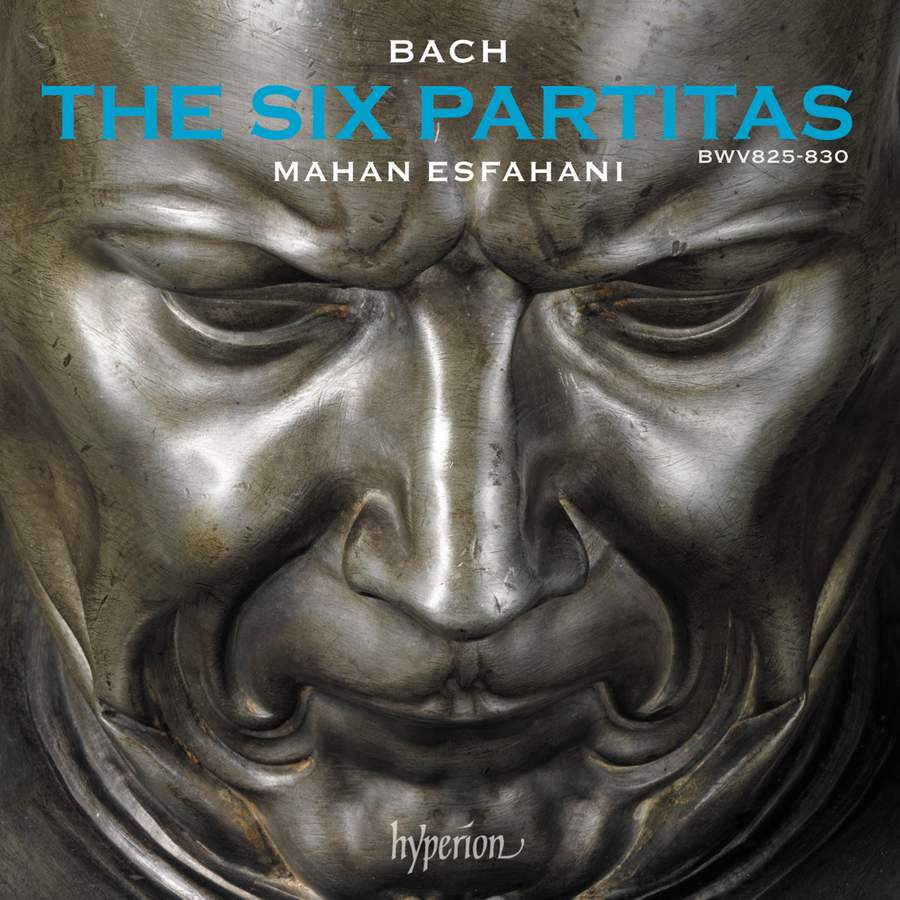JS BACH Six Partitas (Mahan Esfahani)
View record and artist detailsRecord and Artist Details
Genre:
Instrumental
Label: Hyperion
Magazine Review Date: 08/2021
Media Format: CD or Download
Media Runtime: 148
Mastering:
DDD
Catalogue Number: CDA68311-2

Tracks:
| Composition | Artist Credit |
|---|---|
| (6) Partitas |
Johann Sebastian Bach, Composer
Mahan Esfahani, Harpsichord |
Author: Jed Distler
For his recording of Bach’s Partitas, Mahan Esfahani uses a harpsichord built by the workshop of Jukka Ollikka in Prague, which conveys a brightness and definition that mirrors the performer’s absorbing and occasionally unconventional interpretations.
Although the First Partita’s faster movements benefit from Esfahani’s fluent animation, his imagination particularly flourishes in the Sarabande, where the harpsichordist’s elasticity of phrase and ear-catching embellishments up the music’s expressive ante while illuminating its dance origins. Esfahani imparts a distinct character upon each of the three sections of the Second Partita’s Sinfonia. He arpeggiates the Grave adagio’s opening chord in slow motion, and continues to probe the music at free-floating leisure (imagine if Ennio Morricone had recomposed these seven bars!), easing his way into the Andante’s two-part counterpoint, in contrast to the final section’s headlong intensity. His subtle agogic stresses in the Courante create a slightly tipsy aura that will keep you alert, not to mention the Rondeaux’s emphatic off-beat accents and the hefty kick of the Capriccio finale’s left-hand octave coupling.
Esfahani sets an intimate, conversational tone in the Third Partita’s Allemande, where his sophisticated legato finger technique generates uncommon harmonic tension. Those who prefer a steadier tread in the Scherzo may find the harpsichordist’s distensions and accelerations overly unsettled, but one truly can dance to the Gigue’s unpressured lilt. Esfahani’s decisions regarding tempos and articulation throughout each of the Fourth Partita’s movements add up to one of this big work’s most satisfying recorded interpretations, highlighted by a hypnotic, deliberately unfolding Allemande. The Fifth Partita’s striking features include unusual yet convincing fermatas over the rests in the Praeambulum’s opening bars and the Tempo di minuetta’s alluringly blended registration.
It’s refreshing to hear the fugue of the Sixth Partita’s Toccata so beautifully rounded and embellished, as well as how Esfahani relishes the Sarabande’s dissonances. As for the question of playing the Gigue’s main theme in duple or triple metre, Esfahani serves it up both ways. Clearly his pursuit of scholarship never lapses into pedantry either as performer or annotator. Listeners new to the Partitas may find Trevor Pinnock’s remakes (Hänssler, 8/00) a safer, less idiosyncratic first choice, yet there’s no questioning Esfahani’s inquiring musical mind and absolute mastery of his instrument.
Discover the world's largest classical music catalogue with Presto Music.

Gramophone Digital Club
- Digital Edition
- Digital Archive
- Reviews Database
- Full website access
From £8.75 / month
Subscribe
Gramophone Full Club
- Print Edition
- Digital Edition
- Digital Archive
- Reviews Database
- Full website access
From £11.00 / month
Subscribe
If you are a library, university or other organisation that would be interested in an institutional subscription to Gramophone please click here for further information.




